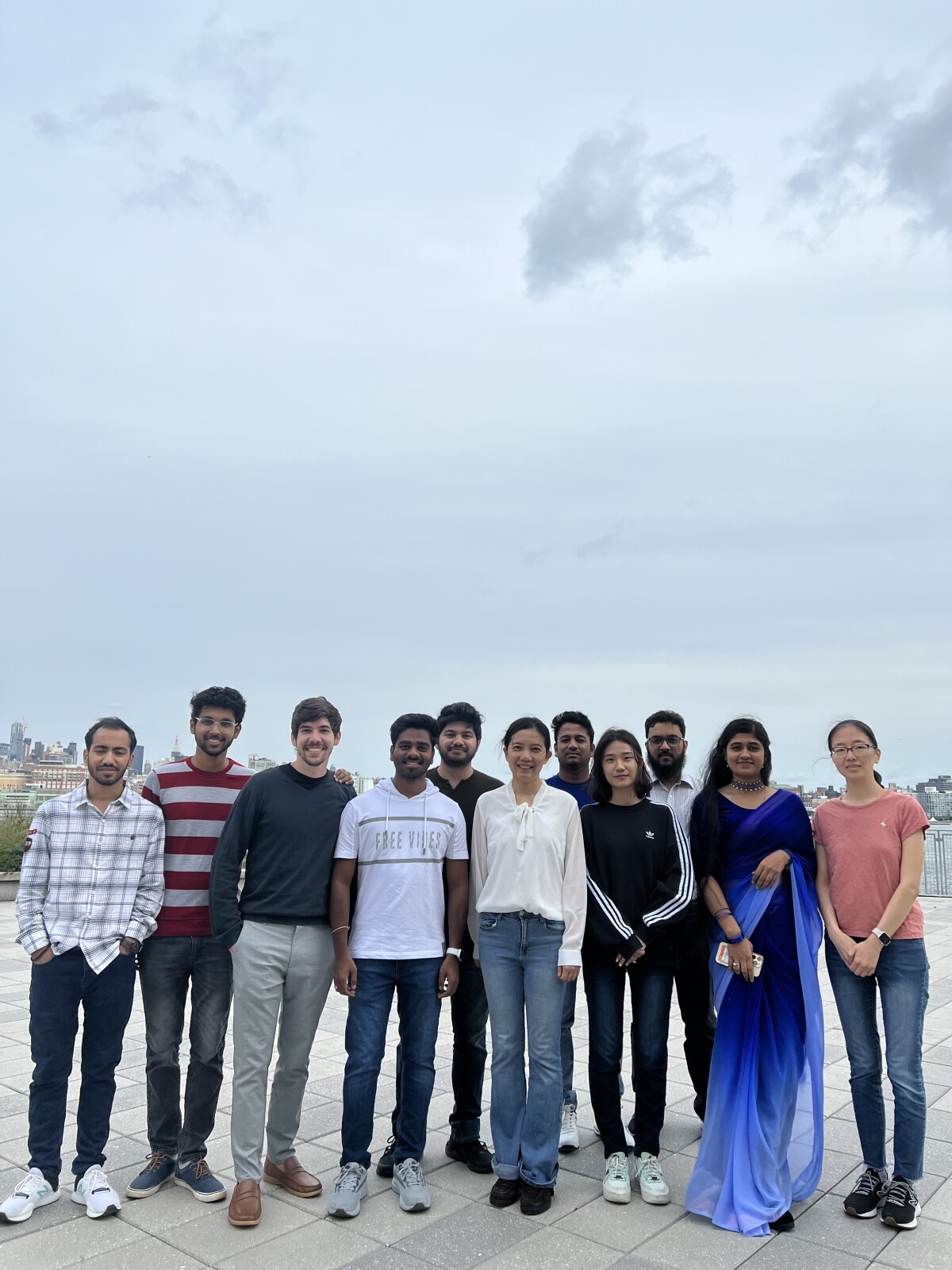We envision the new generation of chatbots to be self-learnable through interaction with customers. The self-learning ability can be specified as the clarifying ability, the inference capability, and the self-adaptation ability. For the clarifying ability, we will train the chatbot to ask clarifying or follow-up questions if there is confusion or uncertainty during the conversation flow, just like how humans try to solve new problems. For the inference capability, when we ask the chatbot some health or finance suggestions or let it make planning for some tasks, we not only want the answer but also need the explanation for that decision and suggestion. To achieve this goal, we will introduce explanations into our chatbot system.

Preet Jhanglani
Jhanglani is a masters student in computer science at Stevens Institute of Technology. Jhanglani has an interest towards data science and machine learning, and is currently learning image processing. He has experience in data science and machine learning from an internship, and has used this experience to contribute towards the WMT 22 competition representing Stevens.
Md Kowsher
Kowsher is a second-year PhD student at Stevens Institute of Technology. He has the ambition to participate in higher learning by taking part in various research works and also by involving practical & theoretical education for increasing my knowledge and innovation capabilities. Kowsher is passionate about real-life problem-solving through technology, and has a strong thirst for knowledge about theoretical and real life generates a passion for technology.
João Luís Lins Rodrigues Cruz - Team leader
Lins Rodrigues Crus is masters student in machine learning at Stevens Institute of Technology. He's curious and a data/AI enthusiast, and began studying machine learning and python on his own before moving to the US. Now, he's eager to put all this preparation into practice and generate value with the scalable potential that technology holds.
Xuting Tang
Tang is a PhD student at Stevens Institute of Technology. Her research interests are natural language processing, explainable AI, reinforcement learning, and deep learning. She has published a paper at the IJCAI 2022 conference.
Mengjiao Zhang
Zhang is PhD student at Stevens Institute of Technology. Zhang's research interests are NLP, federated learning, and privacy and security in machine learning. Zhang has several papers published in these areas at top-tier conferences, including ICML and COLING.
Abhijeet Gusain
Gusain is a dedicated and ambitious Masters student with a strong passion for mathematics, machine learning and natural language processing. He has always been fascinated by the application of mathematical concepts to solve real-world problems. Gusain's research is focused on developing algorithms that can improve the accuracy and efficiency of natural language processing tasks.
Sai Nikhil Reddy Maligireddy
Nikhil is a first-year master's student at Stevens Institute of Technology, passionate about deep learning and natural language processing. Fascinated by the advancements in the field of AI, he developed a strong curiosity for exploring innovative approaches to enhance human-computer interaction. Having worked for Microsoft in the AI and Cloud division, Nikhil has a solid technical background and is committed to conducting cutting-edge research that could revolutionize the way we understand and interact with artificial intelligence systems.
Yeshwanth Reddy
A first-year master's student at Stevens Institute of Technology, Reddy brings a passion for NLP dating back to 2018 when he developed a cross-platform desktop assistant. With a bachelor's degree from NIIT University, India, and real-world experience as a Data Scientist, Yeshwanth is now researching multi-modal models under the guidance of Professor Jia Xu, exploring the intersection of NLP and Computer Vision.
Nusrat Zahan
Zahan is a first-year Ph.D. student at the Stevens Institute of Technology and works as a Graduate Research Assistant at Professor Jia Xu's lab. In 2020, she achieved the Best Paper Award at the ICONCS conference. Nusrat's academic achievements include four journal publications during her Bachelor of Computer Science program. Her research interests encompass natural language processing and deep learning.
Jia Xu - Faculty advisor
Xu is an assistant professor at the Stevens Institute of Technology. Previously, she was an associate professor at the Chinese Academy of Sciences and a faculty member and Ph.D. advisor at Tsinghua University. As a graduate student supervised by Hermann Ney from RWTH Aachen, she had fruitful visits to IBM in Watson and the NLP group in Microsoft Research (MSR) Redmond. Her current research interests are in Machine Learning, with a focus on highly competitive machine translation systems. Lately, she has developed an interest in devising techniques that explore the underlying metric and geometric properties of machine translation systems. She is publishing in mainstream venues in computational linguistics and machine learning (e.g., AAAI, ICML, ACL).

















